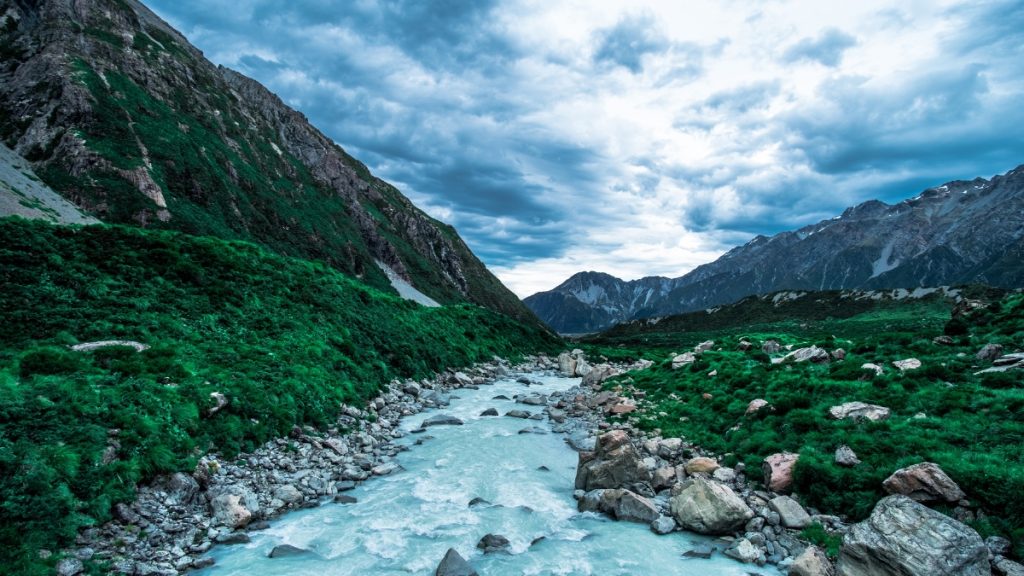If you’re passionate about the environment and want to make a difference in how we interact with the natural world, a career in environmental science and conservation might be perfect for you. This pathway is all about understanding ecosystems, protecting our natural resources, and finding ways to live sustainably. By planning your career step by step, you can start with hands-on experience in environmental projects and build your knowledge through formal education and advanced research.
Who this path could suit
The environmental science and conservation pathway is ideal for those who care deeply about the planet and enjoy being outdoors. If you’re in the Guardian Cluster, this path could be a great fit, as it’s focused on protecting ecosystems and ensuring the wellbeing of our environment. It might also attract those in the Innovator Cluster, who are interested in developing new solutions for environmental issues, such as reducing pollution or combating climate change.
This path suits people who are analytical, observant, and passionate about making an impact. Whether you’re interested in working directly in the field, studying wildlife, or researching environmental policy, there are countless ways to contribute to conservation efforts and help build a sustainable future.
High school pathway – Volunteering with local environmental groups or working in parks
To get started, you could volunteer with local environmental organisations or work in your local park. Many environmental groups run projects like tree planting, habitat restoration, and clean-up days, which are perfect for gaining practical experience. This type of work allows you to see first-hand the impact of conservation efforts and develop a deeper understanding of how ecosystems function.
You’ll also build skills like teamwork, leadership, and observation—all of which are valuable in environmental careers. Working in a local park, you might help maintain trails, support educational programs, or assist with habitat management. These roles give you a chance to get hands-on with conservation and to meet people who are passionate about protecting the environment.
Tips:
- Join local initiatives: Look for local conservation groups that focus on issues like beach clean-ups, wildlife preservation, or community gardens. These experiences are great for understanding local ecosystems.
- Get involved in school projects: Many schools have environment clubs or projects you can join, which can be a great way to build experience.
- Alternative pathways: If volunteering isn’t available, consider part-time work in garden centres, zoos, or nature reserves. Any role that involves working with plants, animals, or natural environments can provide useful experience.
Vocational pathway – Certificate in Conservation and Land Management
After high school, a vocational qualification like a Certificate in Conservation and Land Management could be the perfect next step. This course will teach you practical skills in managing natural environments, restoring habitats, and working on conservation projects. It’s a hands-on way to develop your knowledge of local ecosystems and build the technical skills needed for conservation work.
The course often includes practical placements, allowing you to work on real conservation projects, either in national parks, private conservation areas, or community projects. You’ll learn about land management practices, conservation techniques, and how to conduct surveys that monitor wildlife and plant health. It’s ideal if you want to get straight into the workforce and start making a tangible impact.
Tips:
- Look for fieldwork opportunities: Practical experience is key in this area, so make sure to find a course that offers fieldwork placements where you can learn directly from experienced conservationists.
- Consider niche areas: Within conservation, you might want to specialise in areas like marine conservation, bush regeneration, or working with endangered species. Specialising can give you more targeted skills.
- Alternative pathways: If you decide conservation isn’t quite right, you could explore roles in horticulture, forestry, or environmental education. These are all related fields that focus on working with nature.
University pathway – Bachelor of Environmental Science
If you want to deepen your knowledge and open up more career options, a Bachelor of Environmental Science is a great step forward. This degree covers a wide range of topics, including ecology, environmental policy, conservation biology, and climate science. You’ll develop the skills to analyse environmental problems, conduct research, and develop solutions to protect natural resources.
Throughout your degree, you’ll have opportunities to complete fieldwork and lab work, gaining a better understanding of ecosystems and how to manage them. The degree also includes the study of environmental laws and regulations, which is essential if you want to move into policy or advocacy roles. With an Environmental Science degree, you could work for government agencies, non-profits, or private environmental consultancies.
Tips:
- Get involved in field trips and research projects: Use opportunities during your degree to participate in research projects or internships. Hands-on experience is crucial in this field.
- Network with professionals: Join environmental groups or attend conferences to meet people working in the industry. Networking can help you learn about different career paths and find job opportunities.
- Alternative pathways: If you find yourself drawn to a particular aspect of your studies, consider further specialising in areas like marine biology, environmental law, or sustainability consulting. Each of these offers a different perspective on environmental issues.
Postgraduate pathway – Environmental policy or ecosystem management
Looking towards the future, postgraduate studies can help you move into leadership roles or highly specialised areas of environmental science. You could choose to study Environmental Policy, where you’d learn about the creation and implementation of environmental laws and how to influence policy to protect ecosystems. Alternatively, you could focus on Ecosystem Management, studying advanced conservation techniques and leading large-scale conservation projects.
These options might be 15 years down the track, but thinking about them now can help you shape your early career experiences. Postgraduate study can lead to roles in research, teaching, or working directly with government bodies or international organisations to tackle major environmental challenges. It’s a way to deepen your expertise and contribute to systemic changes that protect the environment on a larger scale.
Tips:
- Focus on your passion: If you’re particularly interested in an area, like marine environments or biodiversity, look for postgraduate programs that align with your passion. Specialising helps you make a more significant impact.
- Stay informed: Environmental science is always evolving, so keep up with new research, technologies, and policy developments. Being well-informed will help you stay relevant and effective in your field.
- Alternative pathways: If postgraduate study isn’t for you, there are many short courses and professional certifications available in areas like Geographic Information Systems (GIS), environmental impact assessment, or project management. These can help you advance without committing to a full degree.
Getting started
The environmental science and conservation pathway is all about building your skills and experience progressively while staying connected to your passion for nature. To get started, look for local volunteering opportunities or find part-time work in parks or conservation projects to get some hands-on experience.
Once you’ve gained some practical knowledge, consider vocational training which can lead directly into rewarding field roles. If you’re interested in deeper learning, a university degree can open up opportunities in research, policy, or advanced conservation work. Each step along this pathway helps build your capacity to make a real difference for the environment.
Learn more about careers
If you’re curious about other career pathways and options, we have heaps of other resources on our website for you to browse.


